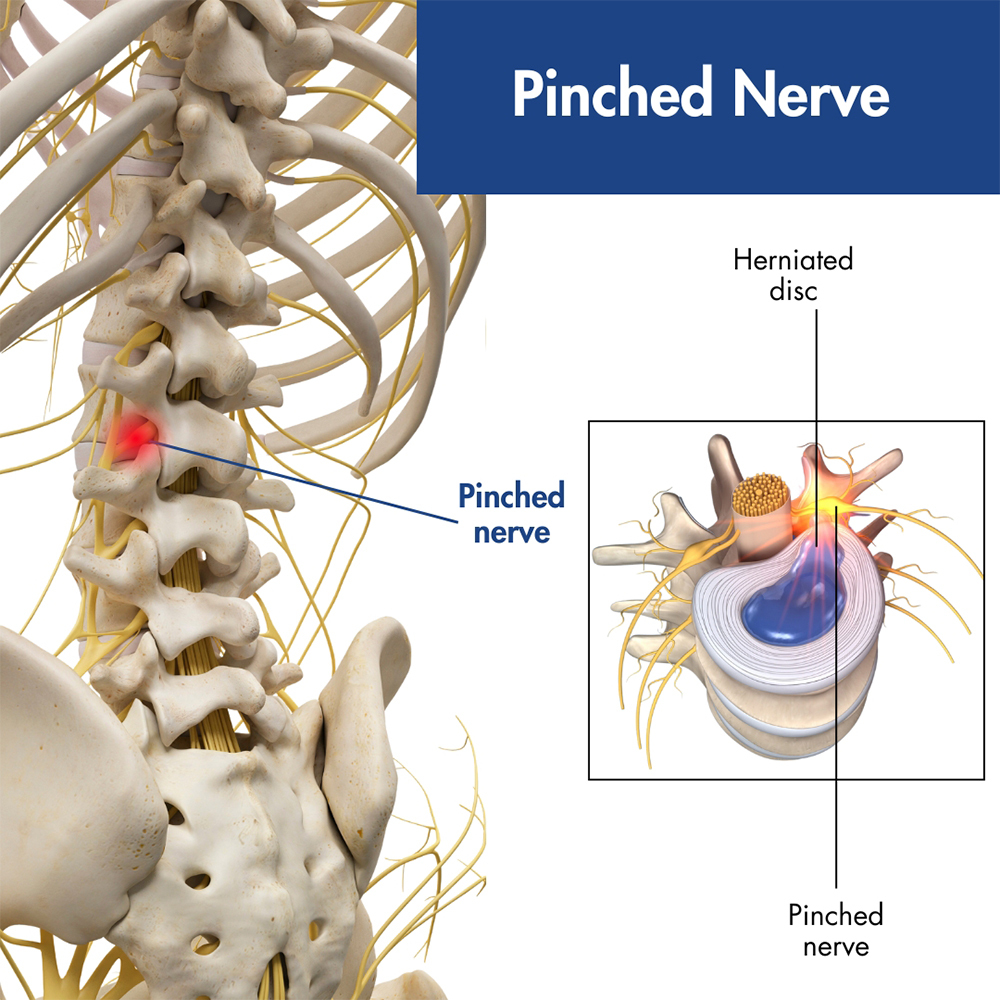We’re pleased to announce that Pain Physicians of Wisconsin is now Pro Spine Pain.
We’re pleased to announce that Pain Physicians of Wisconsin is now Pro Spine Pain.
 At times, it may be tempting to dismiss irritating pain in your neck, back, hands, or legs as merely a pinched nerve. Perhaps you’ve encountered a pinched nerve in the past that resolved with rest. However, without proper assessment by a professional, you have no way of knowing what is causing your discomfort. This instance might involve an underlying condition that requires attention. If you’ve undergone trauma that has resulted in a pinched nerve in the back, neck or another part of the body, without proper treatment, it could result in lasting damage. Don’t take the risk. The pain management specialists at Pro Spine & Pain excel in diagnosing and treating your pain. Call today to schedule an appointment.
At times, it may be tempting to dismiss irritating pain in your neck, back, hands, or legs as merely a pinched nerve. Perhaps you’ve encountered a pinched nerve in the past that resolved with rest. However, without proper assessment by a professional, you have no way of knowing what is causing your discomfort. This instance might involve an underlying condition that requires attention. If you’ve undergone trauma that has resulted in a pinched nerve in the back, neck or another part of the body, without proper treatment, it could result in lasting damage. Don’t take the risk. The pain management specialists at Pro Spine & Pain excel in diagnosing and treating your pain. Call today to schedule an appointment.
Whether it’s back pain or neck discomfort, a pinched nerve could be the culprit. Nerve impingement can be categorized into two types: entrapment and compression. Entrapment arises when soft tissues, such as muscles and ligaments, compress nerves or otherwise put pressure on them. On the other hand, nerve compression syndromes occur when hard tissues, like bone, exert undue pressure. Regardless of the type of impingement, it can lead to severe pain, discomfort, numbness, weakness, and even radiating pain to other parts of your body.
Timely and accurate diagnosis, along with proper treatment of a pinched nerve or any other condition contributing to back or neck pain, provides the best chance for healing. At Pro Spine & Pain’s five locations in Wisconsin, you’ll receive comprehensive care from top pain management experts who employ cutting-edge, non-invasive treatments to help you effectively manage your pain. Don’t let a pinched nerve slow you down when solutions are within reach.
The symptoms and their intensity can vary depending on the location of the pinched nerve.
Here are some of the most common indicators:
A pinched nerve can present as upper back pain when it occurs near your shoulders, lower back pain
Pinched nerve in back treatment may be necessary for a specific type of nerve damage. While “pinched nerve” is a colloquial term, the medical term for symptoms caused by a compressed or damaged nerve in the spine is known as radiculopathy.
Various types of radiculopathy exist based on the location of the affected nerves:
Radiculopathy commonly stems from changes in the tissues surrounding nerve roots. These tissues encompass the bones of the spinal vertebrae, tendons, and intervertebral discs. When these structures undergo alterations in position or size, they may constrict the spaces through which the nerve root moves within the spine or exit the spine—these openings are referred to as foramina. The constriction of these foramina is termed foraminal stenosis, closely resembling spinal stenosis, which affects the spinal cord.
In most instances, foraminal stenosis arises from the gradual degeneration of the spine that accompanies the aging process. However, it can also result from an injury.
A pinched nerve occurs when pressure is applied to a nerve by nearby soft tissues, bones, or cartilage. This condition can be triggered by spinal degeneration or injury. Traumatic events such as sports injuries or car accidents may lead to a bulging or herniated disk, subsequently placing stress on the spinal cord and nearby nerves.
Activities involving repetitive motions, like running, computer work, or swinging arm movements elevate the risk of a pinched nerve. Certain medical conditions, such as osteoarthritis, rheumatoid arthritis, and thyroid disease can also increase susceptibility. Furthermore, the added pressure on the spine during pregnancy or due to obesity may impinge on nerves.
To determine your pinched nerve treatment, your pain management expert at Pro Spine and Pain will conduct a comprehensive physical examination to assess muscle strength and reflexes and examine how your pain responds to specific movements. Additional tests may be recommended, such as a high-resolution magnetic resonance imaging (MRI), electromyography (EMG) or ultrasound, and nerve conduction studies may be conducted to evaluate normal nerve function.
Conservative treatments for a pinched nerve begin with discontinuing activities that exacerbate the problem. In some cases, your doctor may suggest wearing a splint to immobilize the area, especially for conditions like carpal tunnel syndrome—a common form of pinched nerve. Incorporating preventive measures, such as maintaining proper sitting and standing postures (to avoid piriformis syndrome), will also support your recovery and help prevent future occurrences in the specific location as well as peripheral nerve problems.
If lifestyle adjustments prove insufficient, a physical therapist can assist with stretching and strengthening exercises for muscles around the pinched nerve, alleviating pressure. Over-the-counter pain relievers, like nonsteroidal anti-inflammatory drugs (NSAIDs), can help reduce inflammation and manage pain, while corticosteroid injections may be recommended to alleviate pain and swelling.
While Pro Spine & Pain doctors prioritize the least invasive treatments, minimally invasive surgery may become necessary in some cases of treating a pinched nerve. Pinched nerve in back treatment might involve procedures like removing a bulging disc to relieve pain, or bone spurs treatment with vertebrae spacers. In the wrist, your doctor might sever the ligament that houses the carpal tunnel.
Prompt attention to back pain is crucial for effective treatment, and an early diagnosis helps prevent further damage. Contact Pro Spine & Pain today for compassionate care with locations in Kenosha, Waukesha, Layton, Franklin, and Madison. Our pain management experts are dedicated to getting you on the path to a pain-free life as swiftly as possible.

Thomas Stauss, MD, completed both his undergraduate and medical studies at the esteemed University of Wisconsin in Madison. Dr. Stauss values having access to a wide array of cutting-edge treatment options, ensuring effective relief for his patients' discomfort and a significant enhancement in their quality of life. More specifically, he specializes in utilizing implanted devices to manage chronic pain. Dr. Stauss’s primary objective is to uphold the dignity of each patient while delivering ethical and professional services.
More about Dr. Stauss